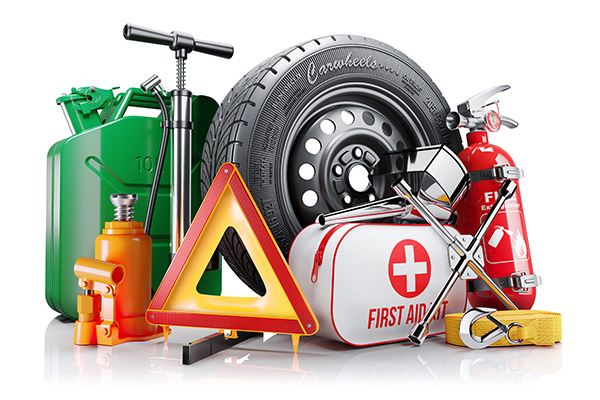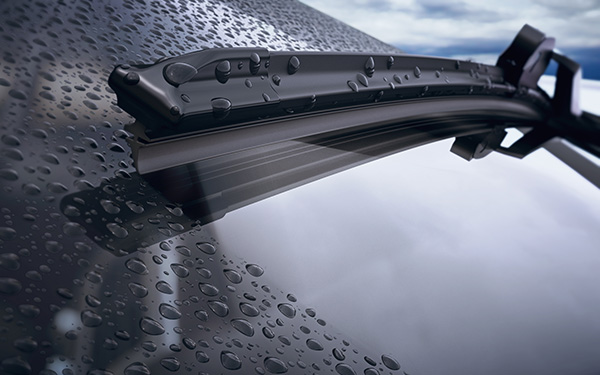Posted on 9/27/2024

Your vehicle’s speedometer is one of the most essential instruments on your dashboard, yet it’s often overlooked—until it stops working. A faulty speedometer may seem like a minor inconvenience, but driving without accurate speed information can put both you and others at risk. From misjudging speed limits to triggering fines or even accidents, the dangers are very real. We'll explain why it’s so important to ensure your speedometer is functioning properly and the potential consequences of driving with a broken one. Why a Working Speedometer is Crucial A speedometer does more than just tell you how fast you're going. It helps you maintain control over your vehicle by allowing you to adjust your speed to match road conditions, weather, and speed limits. Without it, you’re essentially driving blind when it comes to knowing how fast your ... read more
Posted on 8/30/2024

When your car refuses to start or suddenly dies on you, it's easy to jump to conclusions about what might be wrong. Often, the culprit lies within your vehicle's electrical system—specifically, the battery or the alternator. But how can you tell which one is causing the issue? Diagnosing battery and alternator problems can seem daunting, but with a bit of know-how, you can troubleshoot the problem effectively and get your car back on the road. The Signs of a Weak or Dead Battery Your car's battery is its lifeblood, providing the power needed to start the engine and run electrical components. However, like all things, batteries don't last forever. If your car struggles to start or you notice the headlights dimming when you're idling, these could be signs that your battery is on its way out. But how do you know if the battery is truly failing? One of the first things to check is the age of your battery. Most car batteries last between three t ... read more
Posted on 7/26/2024

Seeing the check engine light illuminate on your dashboard can be a nerve-wracking experience. It's one of those moments that can make any driver's heart skip a beat. What does it mean? How serious is it? Should you pull over immediately or can it wait? Let's crack the mystery behind this often misunderstood indicator and explore what triggers the check engine light in your car. The "Check Engine" Warning Light The check engine light is part of your car's onboard diagnostics system (OBD). When this light turns on, it signals that something within your vehicle's engine or emission control system isn't functioning correctly. The severity of the issue can vary widely, from a loose gas cap to more serious engine problems. Understanding the potential triggers can help you determine the appropriate course of action. Common Reasons for the Check Engine Light1. Loose or Faulty Gas Cap One of the simplest ... read more
Posted on 6/28/2024

Maintaining a fleet of vehicles isn't just about keeping them on the road - it's about ensuring they perform optimally and safely over the long term. Fleet maintenance can significantly influence the lifespan and safety of your vehicles, making it a critical aspect of managing a fleet efficiently. Let's explore how regular and effective fleet maintenance can extend vehicle longevity and enhance safety. The Link Between Regular Maintenance and Vehicle Longevity When it comes to vehicle longevity, regular maintenance is non-negotiable. Just like regular check-ups can keep your health in check, routine maintenance can do wonders for your vehicles. By adhering to a consistent maintenance schedule, you can catch minor issues before they escalate into major, costly problems. For instance, regular oil changes keep the engine lubricated and running smoothl ... read more
Posted on 5/29/2024

Have you ever wondered about the fate of that old engine oil drained during an oil change? This is the journey of used engine oil, its environmental impact, and its potential for recycling. The Oil Change Process During an oil change, the removal of old engine oil is a vital step in maintaining the health and longevity of a vehicle's engine. This process eliminates degraded oil and removes contaminants such as dirt, metal particles, and combustion byproducts that can accumulate over time and compromise engine performance. By replacing old oil with fresh lubricant, the engine can operate more efficiently, reducing friction and wear on critical components, ultimately extending the engine's lifespan. Collection and Storage After ... read more
Posted on 4/28/2024

Ever found yourself stranded on the side of the road with a flat tire or a dead battery? It's moments like these when having the right tools and supplies in your car can make all the difference. What are the seven essential items every driver should have in their car emergency kit? From basic necessities to life-saving gear, being prepared can turn a potentially stressful situation into a manageable one. 1. First Aid Kit No car emergency kit is complete without a first aid kit. It's your go-to for minor injuries sustained during accidents or mishaps on the road. Stock it with bandages, antiseptic wipes, adhesive tape, pain relievers, and emergency contact information. Having immediate access to medical supplies can be crucial in ensuring the best possible outcome in case of an injury. 2. Emergency Roadside Assistance Kit A roadside assistance kit is your lifeline in unexpected situations. It should include essentials like jumper cables, a f ... read more
Posted on 3/28/2024

When it comes to road safety, few elements are as crucial as your windshield wiper blades. They help maintain visibility during rain, snow, and sleet. However, not all wiper blades are created equal, and selecting the right type can significantly impact their effectiveness. Windshield wiper blades consist of a rubber or silicone blade attached to a metal or plastic frame. Their primary function is to sweep away rain, snow, dirt, and debris from the windshield, ensuring an unobstructed view for the driver. Over time, exposure to the elements and regular use can lead to wear and tear, diminishing their effectiveness. Factors to ConsiderMaterials Rubber Blades: Traditional and cost-effective, but may wear out faster. Silicone Blades: Durable, resistant to harsh weather conditions, and provides a smoother glide. Blade Type ... read more
Posted on 2/27/2024
%20(Small).jpeg)
A world where your vehicle always operates at its peak - where fuel efficiency is maximized, and engine parts glide together in perfect harmony. This isn't just a fantasy; it's the reality fluid additives can offer. These chemical marvels are the guardians of your vehicle's internal systems, ensuring everything runs smoothly and efficiently. But what exactly are these additives, and how do you choose the right ones? What Are Fluid Additives? At their core, fluid additives are chemical compounds designed to enhance the properties of a vehicle's essential fluids. From your engine oil to your radiator coolant, these additives play a pivotal role in optimizing performance and extending the lifespan of your vehicle's internal components. Whether it's c ... read more
Posted on 1/30/2024
.jpeg)
Since its introduction, power steering has made driving much easier. This innovation is not just a luxury but a crucial component in ensuring maneuverability and safety. While it might seem simple at first, there are a few things every car owner should know - whether for maintenance purposes or just to be informed. How Does The Power Steering System Work Power steering systems assist the driver by reducing the physical effort needed to turn the steering wheel. Traditionally, this system uses hydraulic pressure derived from the car's engine to aid in steering. When you turn the wheel, a pump sends hydraulic fluid to a piston that helps move the steering gear. This process significantly lessens the force required to steer the vehicle, especially at lower speeds or when the vehicle is stationary. Different Types Of Power Steering Power steering systems have evolved over the years, and there are two main types found in modern vehicles: Hydraulic P ... read more